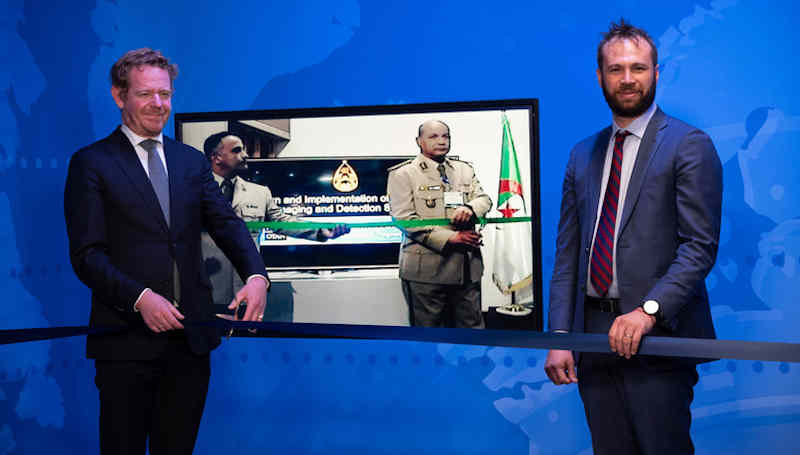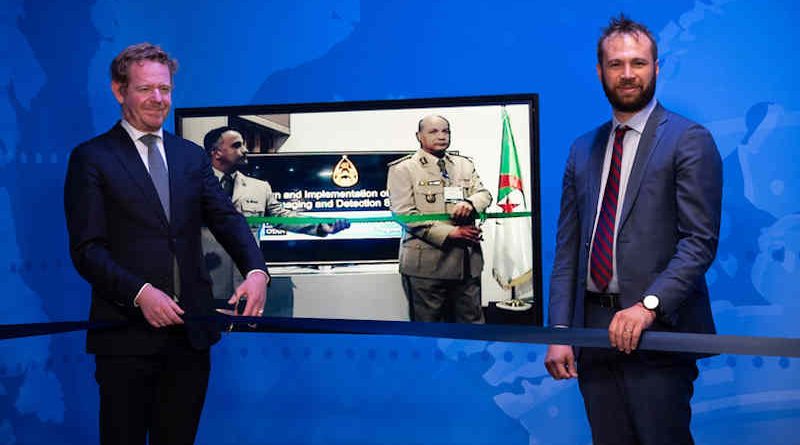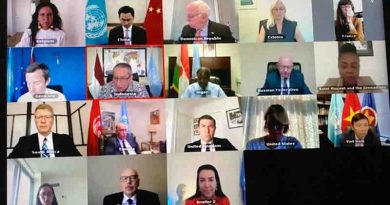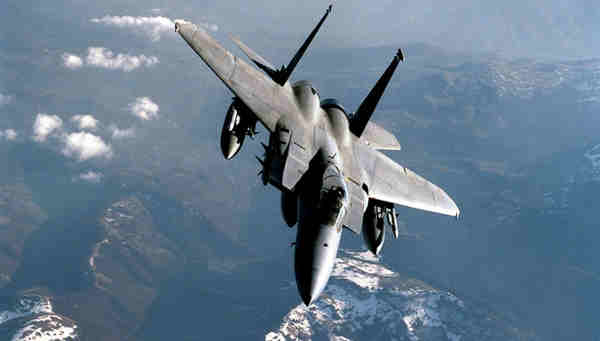NATO Develops Tech Solutions to Fight Against Terrorism

This new terahertz imaging technology was inaugurated at a virtual ribbon cutting ceremony.
The first scientific cooperation activity between NATO and Algeria concluded on May 17 for developing technological solutions to fight against terrorism. This represents an important milestone in NATO’s engagement in the Middle East and North Africa.
Within the framework of the NATO Science for Peace and Security Programme (SPS), experts from Algeria, France, and Sweden have developed the first terahertz imaging technology in North Africa. This scanning system will enable the detection of dangerous materials, such as firearms and explosives, and will thus have potential applications in the protection of vulnerable sites from terrorist threats.
This new terahertz imaging technology was inaugurated at a virtual ribbon cutting ceremony with NATO officials, representatives from Algeria, France, and Sweden, as well as the multinational group of scientists who led the research.
NATO Assistant Secretary General for Emerging Security Challenges, David van Weel, and General Serir Aomar, Dean of the Ecole Militaire Polytechnique in Algeria, participated from NATO Headquarters and Algiers, respectively.
High-level participants in the event stressed the value of this initiative not only in the fight against terrorism, but also as an example of practical scientific cooperation between NATO and its partner nations.
|
What Is Terrorism? While there is no specific definition of terrorism, it is only a form of political system clandestinely run by professional politicians of the world. In today’s criminalized political environment all across the world, it is not possible for politicians to survive if they are not corrupt. Thus, political corruption is the main reason for increasing terrorism in the world and politicians are secretly running organized terrorism networks. The people who are branded as terrorists are, in fact, victims of state terrorism inflicted by the despotic regimes which brutalize the innocent citizens and deprive them of their fundamental rights. When police and security forces behave as criminals and justice systems fail, the ordinary citizens react violently. Such citizens can’t be called terrorists. Rather, the cruel rulers and their security forces are terrorists. The world community and lawmakers must amend their definitions of terrorism accordingly. |
According to Mr. Alexandre Escorcia, Deputy Permanent Representative of France to NATO, “The completion of this remarkable project highlights the importance of partnerships, which are one of the great strengths of our Alliance.”
H.E. Mr. Mohamed Haneche, Ambassador of Algeria to Belgium, highlighted that “A priority of our cooperation with NATO consists in the reinforcement and modernization of Algeria’s defence and security apparatus, and the development of scientific, technical and technological potential, in particular through training, exchange of experience, good practices and scientific research.”
Mrs. Sara Uddenberg, Deputy Head of the Mission of Sweden to NATO, added that “Such a joint project reinforces the network of scientists and experts in NATO and its partner nations and contributes to the transfer of knowledge and expertise.”
This first scientific cooperation project with Algeria was launched at NATO Headquarters in October 2017. Since then, researchers at the Université Savoie Mont Blanc (France), Ecole Militaire Polytechnique (Algeria) and KTH Royal Institute of Technology (Sweden) worked together to design and develop a terahertz imaging and detection system.
A prototype of this technology was then set up at the Algerian Ecole Militaire Polytechnique to test its real world applications. The screening capabilities of this technology may contribute to the fight against terrorism and, through further research, could also be expanded to other applications, such as body scanners and environmental monitoring.
According to General Aomar Serir, “The system implemented within the framework of this project can be integrated and operate in combination with the traditional security systems already functional, and thus contribute to increase our security and defense capabilities.”
“This project developed a technology and setup that will enable Algerian scientists to continue advancing their research in the field of terahertz imaging. Its success will also act as a gate-opener for other cooperative activities between NATO Allies and Algeria, as well as other Mediterranean Dialogue partners. The NATO Science for Peace and Security Programme will continue exploring opportunities for further support,” said Dr Deniz Beten, Senior SPS and Partnership Cooperation Advisor.
Following the launch of this multi-year project, other activities with Algeria within the framework of the NATO Science for Peace and Security Programme have begun. They include a research and development project in the field of defence against chemical, biological, radiological and nuclear agents, as well as advanced training courses in counter-terrorism.





